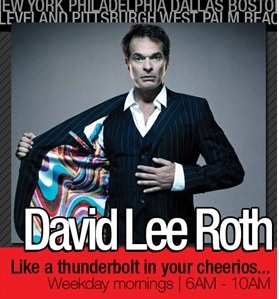As our media world continues to rock and roll, it is amazing to hear how some analysts evaluate the effectiveness of marketing in these new spaces.
ESPN jumps headlong into Twitter, along with the rest of the sports world, because the data – statistical and anecdotal – continue to support its effectiveness.
Maybe that’s why recent comments from NBC-TV’s head of research, Alan Wurtzel, seemed to be pretty anomalous with what many media mavens are thinking. In case you missed it, Wurtzel made the claim last week that when it comes to driving ratings, Twitter is a sham. (You might also remember GM taking a similar stance nearly two years ago when Facebook went public, claiming that the biggest social network wasn’t effective as an advertising vehicle. General Motors has since spent media dollars on Facebook).
But Wurtzel clearly got a lot of attention as he explained to the Financial Times’ Emily Steel that Twitter is less valuable than most media pundits think. In fact, he claimed that when it comes to Twitter’s ability to generate audience ratings, “it just isn’t true. I am saying the emperor wears no clothes. It is what it is. These are the numbers.”
The numbers he’s primarily referring to are NBC’s mediocre ratings performance in the Sochi Olympics. And that raises another question: could any marketing improve on a product that just isn’t all that interesting or compelling to large numbers of viewers?
 If you worked in radio in the ‘70s or ‘80s when marketing dollars were plentiful, you know exactly how that plays out. There is no marketing, contesting, or promotion that will help vault a station whose programming is inherently flawed, damaged, or over the hill.
If you worked in radio in the ‘70s or ‘80s when marketing dollars were plentiful, you know exactly how that plays out. There is no marketing, contesting, or promotion that will help vault a station whose programming is inherently flawed, damaged, or over the hill.
And as ShareThis CEO Kurt Abrahamson noted, “Just because it was talked about doesn’t mean it’s all positive.” A look at Twitter commotion during the Olympics reveals a wide range of consumer attitudes, and as Abrahamson notes, there were a lot of issues with this mega-sports event in Russia.
Marketers have to understand their products and the tools they use to promote them. I recall when I first got into radio, I had a conversation with a major market radio executive who flatly told me that “Billboards don’t work.” He was insistent that he would never, ever buy any more outdoor ads.
Of course, that pronouncement was based on very run-of-the-mill billboard creative, a poor overall market showing, and a radio station that was nothing very special.
Twitter’s effectiveness as a digital outlet of ongoing dialogue that accompanies TV programming – especially, live real-time shows – continues to draw the audience closer to the screen. How it is used, how a show’s stars interact with Tweeters, and whether the programming itself stimulates conversation, controversy, and yes, some classic snark are all elements that can determine the effectiveness of this mashup between old school media and digital/social interactivity.
Some radio stations, shows, and personalities could be more effective if they took the time to dialogue with the audience on a real-time basis. Those who have staked out this turf and have stayed committed tend to champion Twitter’s value to their show and building stronger listener bonds.
So beware when media executives lay the ratings blame on marketing, whether it’s “Anchorman 2,” “The David Lee Roth Show,” or the Sochi Olympics.
Nothing – not even social media – can save programming that consumers just don’t care about.
Even though they may be talking about just how bad it is.
- Media And Technology In 2025: Believe It Or Not! - April 18, 2025
- In Radio, You Just Never Know - April 17, 2025
- The Secret To Making A Great Podcast (And Great Radio) - April 16, 2025




I believe the Super Bowl and Grammy’s both had huge ratings this year and the top two tweeted about events of all time. You’re right, if the content isn’t good, why would people talk about it? Twitter is a great engagement tool of what’s trending.
And Chuck, just because people chatter about a show doesn’t make it worthy. Thanks for chiming in.
We used to say “the request lines don’t get ratings.” True: the listeners on those lines got us ratings. Our job was to answer, engage them in conversation, and reflect that on the air. Twitter is today’s request line — instant feedback and an overview of trends. Mr. Wurtzel should watch Twitter blow up when “The Voice” airs. I can’t remember what network the show’s on, but I’m sure he can check his local listings.
Ed, it comes from a fundamental misunderstanding of what moves the needle. Great contests, hot TV spots, clever boards – and great Twitter action – means little if the show isn’t interesting or compelling. Thanks for the comment.
Interesting read guys. On Monday, we jumped into digital outdoor for the first time in a while. Tickets to George’s last show at Texas stadium.
The twist on the creative this time is we update the digital board hourly with a twitter feed that talks to specific times to win (i.e, listen in 5 minutes to qualify, Don’t miss your chance in 15 minutes”, listen before 5:30 etc.)
Who know if it’ll move the needle in the crazy Nelsen world…but it feels like much stronger copy and attention to specifics than we’ve ever done before~!
DP
I like the real-time aspect of this. Coupled with great brands, that needle could be moving. Thanks for sharing, Dave.